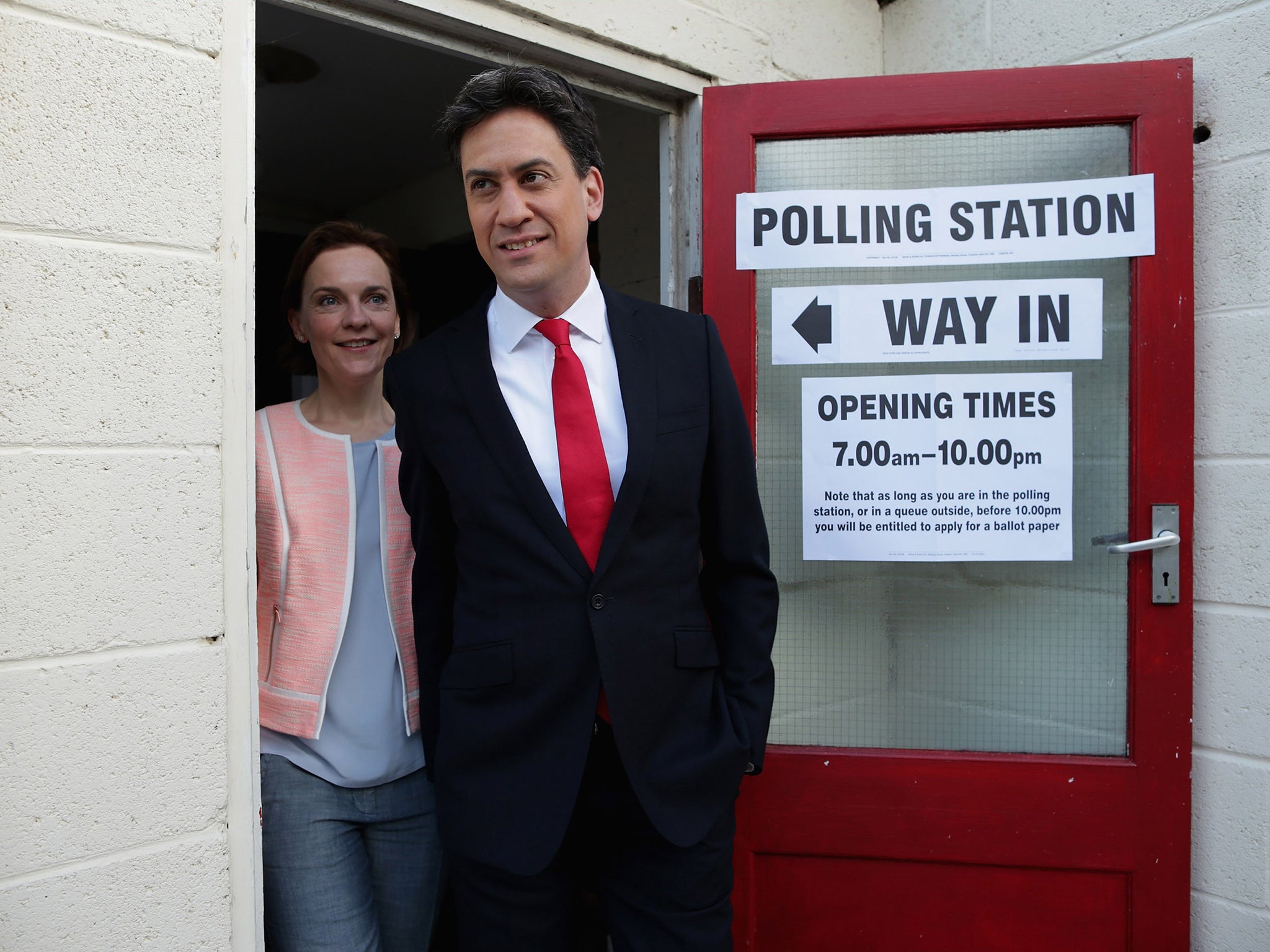General Election 2015: Ed Miliband has kept Labour in the game despite their campaign being clouded by the spectre of a deal with the SNP
The party remained united despite Tory attempts to drown out its key message on the future of the NHS with warnings of a post-election pact with Nicola Sturgeon's party

“We are not going to spend the next fortnight talking about the SNP,” Ed Miliband told aides two weeks ago. But Labour was forced to do just that, as the Conservatives and their newspaper allies kept up relentless warnings about how Nicola Sturgeon’s party would push a minority Labour government further to the left.
Labour’s worst spell in the six-week campaign came when its planned week-long blitz on the NHS was eclipsed by the spectre of a post-election deal between Labour and the SNP. “Health week became SNP week,” one Labour insider admitted.
Reports from Labour officials on the ground said the party’s messages were being clouded by speculation about what would happen after the election. Some reported growing fears among voters in England that the “SNP tail would wag the Labour dog.” The Tories’ campaign was working, and hurting.
Despite that, the mood in Labour’s ranks remained remarkably buoyant. The grumbling noises during last year’s European Parliament elections did not happen. Labour maintained its discipline – something Mr Miliband could not take for granted before the election since his party had come close to ditching him last autumn.
General election 2015: Polling day
Show all 16The main reason for Labour’s united front was the performance of Mr Miliband. He found another gear that many in his party did not know he possessed. The confidence he exuded in his public performances spread through his party. The Tory breakaway in the opinion polls that David Cameron’s party desperately wanted never materialised. Labour stayed in the game.
Mr Miliband’s personal ratings improved – from a very low base. He still trailed Mr Cameron when voters were asked who would make the best prime minister but he closed the gap. Above all, he looked statesmanlike – not least when he launched Labour’s manifesto and in the leaders’ TV election programmes. Perhaps it was no coincidence that Labour’s worst week was the one without any leaders’ TV event. Even right-wing newspapers struggled to find ammunition with which to ridicule him.
The Labour leader claimed his party was “making the weather” and, with the exception of the SNP cloud, he was right. Labour kept its best issue, the NHS, in the frame. In the eyes of many Labour figures, the party’s best moment came when Mr Miliband announced he would end “non-dom” status, which allows British residents with links to other countries to avoid tax on their overseas income. It was a defining moment. The Tories were on the wrong side of the argument and knew it. They unleashed a diversionary personal attack on Mr Miliband, but it appeared to backfire.
Labour could never match the Tories’ expensive “air war” on national messaging but pinned its hopes on winning the “ground war” in the battleground seats with an army of footsoldiers the Tories did not have. Labour surpassed its target of four million conversations with voters since January. It was raised to five million and then on election day, the party hit six million.
Douglas Alexander, the shadow Foreign Secretary and Labour’s election campaign chief, somehow managed to have 5,000 conversations with his constituents in Paisley and Renfrewshire South, where his 16,614 majority was under threat from the SNP surge. Yet he still attended key strategy meetings in London and is regarded by colleagues as one of the unsung heroes of the Labour campaign. He is credited with turning what some insiders feared was a dysfunctional machine into an effective one after Mr Miliband’s private office at the Commons moved to Labour’s HQ in Brewer’s Green half a mile away for the election.
The economy was the Tories’ other potential trump card but Labour proved more resilient than expected at fending off their attacks. Its message that the recovery had not reached ordinary working people appeared to chime with them, raising the Tories’ fears of a “voteless recovery.” Belatedly, Labour talked up its pledge to cut the deficit every year by putting it on page one of its manifesto. But independent analysts pointed to the flexibility in Labour’s plans, allowing the Tories to again raise the prospect of a post-election deal between Mr Miliband and Ms Sturgeon.
The Labour leader toughened his language, insisting there would be no formal deal with the nationalists, but the Tories and the media would not allow him to escape the SNP shadow.
Whatever the election outcome, Mr Miliband can hold his head high. Even his internal critics accept that. Lord Mandelson, the Blairite former Cabinet minister, said: “Miliband has moved forwards. He gained credibility. He’s exceeded most people’s expectations. I had a slight fear about him before the campaign began that he sort of withdrew too much from the media. What he’s doing instead is basically going towards the camera, embracing the media and talking through the media to the public as a whole, with a combination of conviction and passion but also essentially, credibility. He has way exceeded my expectations and actually I’m proud of him.”
Subscribe to Independent Premium to bookmark this article
Want to bookmark your favourite articles and stories to read or reference later? Start your Independent Premium subscription today.

Join our commenting forum
Join thought-provoking conversations, follow other Independent readers and see their replies